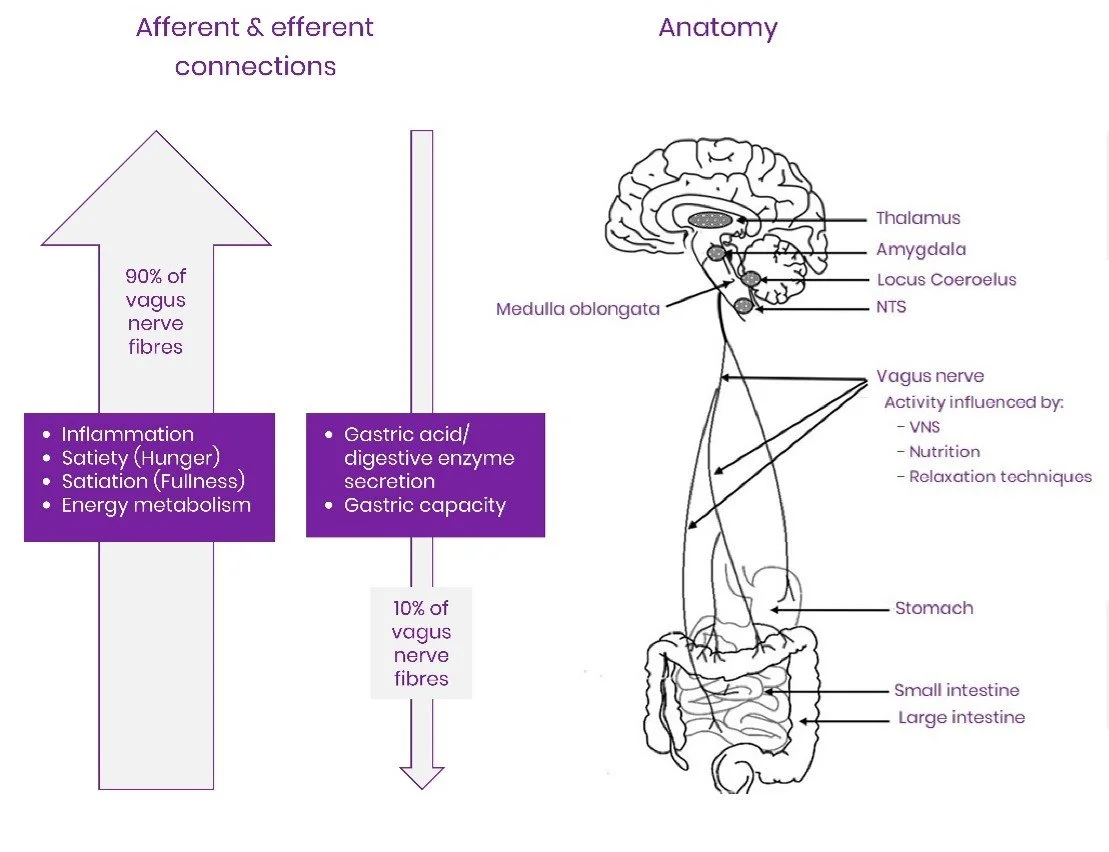Welcome to your Sixth Sense, the Vagus Nerve.
The vagus nerve is the largest and most complex of the twelve cranial nerves. It is a set of nerves connecting most of the major organs between the brain and the gastrointestinal tract.
It’s like the super-highway that connects the gut to the brain. The word "vagus" literally means “wanderer” in Latin, which accurately represents how the nerve wanders all over the body and reaches various organs.
I’d never thought about it as our sixth sense, but as the authors from this study state, it’s certainly how it behaves.
The vagus nerve is able to sense the microbiota, then transfer this gut information to the central nervous system where it is integrated to generate a positive or negative response. In addition to sensing information from gut microbes, the vagus nerve also picks up information from other vital organs such as the liver, heart and lungs and delivers this information to the brain. Phenomenal really!
What's stress got to do with it?
Stress stimulates the sympathetic nervous system which inhibits the vagus nerve and reduces vagal 'tone', resulting in a myriad of detrimental impacts. On top of this, given that the vagus nerve has an anti-inflammatory regulatory action within the body, suppression through chronic and unmanaged stress can upregulate inflammation.
As Dr Damian Holsinger, a Senior Lecturer in Neuroscience at the University of Sydney says, “If we can activate our vagus nerve, and make sure it’s functioning optimally, it will calm everything down much quicker and keep our body safe from the biological impacts of stress.” He goes on to say, “You need the rest state to repair, and it’s the vagus nerve that’s responsible for getting us back into that state, but if you have your foot on the pedal continuously your vagus nerve will not kick in.... So to be able to activate this system properly is absolutely crucial.”
Fortunately, there are plenty of ways to support healthy vagal tone and activate the wandering nerve.
On the nutrition front, zinc, omega-3 fatty acids, fibre and fermented foods are especially important for the health of the vagus nerve. Laughter, singing, chanting, meditating, gardening, being creative, movement, massage, deep and slow breath work (aim for 6 breaths/minute), time in nature and cold therapy are also wonderful ways to increase vagal tone.
The goal is to have plenty of screen-free activities in your life that signal ‘safety’. You don't have to do ALL the things (ironically, trying to achieve do ALL of these things would be stressful!), but you DO have to make SOME time for the things you enjoy. Know what your antidotes to stress are... and don't underestimate the power of these actions and habits for your physical or mental health.


